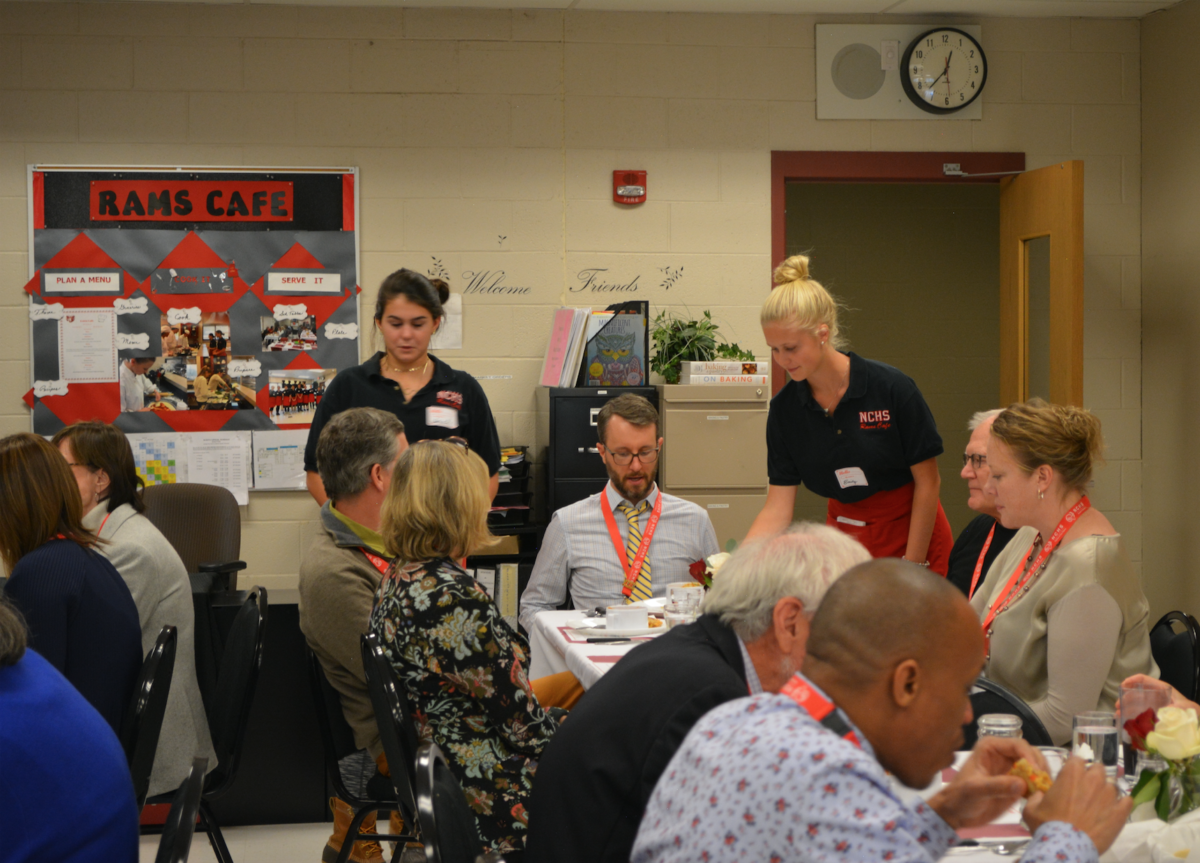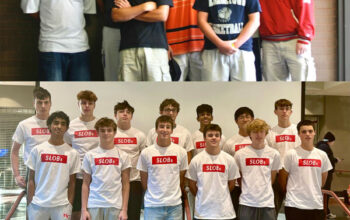Allie Neugeboren, Editor in Chief
@alneugiecourant

This the past week of November 23, NCHS was visited by a group of 17 administrators and teachers known as the Tri-State Consortium. This special group of educators visited classes from every department and all five schools of the NCPS district, focusing on the high school’s advancements in ‘cognitive engagement’.
Assistant Principal Ari Rothman delves deeper into the importance of the essential question regarding cognitive engagement. “The main reason I see the value in this is if we think all our students are cognitively engaged, meaning really required to think and the work we’re giving is meaningful and relevant and do you as a student see this as worthwhile, then we need to know if that’s something we’re really doing or just believe we are doing,” he said.
The question specifically proposed to the Tri-State Consortium and aided their thinking during their visit was to what extent are all students cognitively engaged in rigorous and relative learning in the classrooms.
The selecting committee, consisting of Mr. Rothman and other administrators at NCHS, put together a ‘menu’ of all classes offered at the high school from core academic classes to electives. Mr. Rothman reasons allowing the Consortium to have reign to visit any classroom as intentional. “If this is going to be a valuable visit to us, I’m not just going to send them to certain classes,” he said. “When the district decided to make this to what extent are all students cognitively engaged, it’s useless to just send them to high level classes.”
Mr. Rothman explains the domino effect of student preparation he hopes the consortium’s visit and feedback will bring. “If we can do a better job preparing you as a student for the type of work and thinking you are expected to do in college then that helps everybody do their job better,” he said.
As for the immediate effects, after a month, a report is sent back to the high school, breaking down the results of the visit which later leads into a NCPS teacher learning dialogue day.
Director of Training of the Tri-State Consortium Kathleen Reilly explained the purpose of their visit and what the organization’s mission is, specifically noting how it was founded by a New Canaan native. “Tri-State is a member organization and New Canaan is one of the founding fathers, it was Gary Richards, back in the day,” she said. “New Canaan has been working with the system for quite some time with what they’re calling cognitive engagement.”
Ms. Reilly stressed the importance of how the visit isn’t an evaluation of the school’s teachers or students, but to review if students have felt the shift in their learning. “The best thing about Tri-State, is that it’s not a deficit model, that is to say we’re not here to find out what’s missing, we’re here as colleagues and critical friends,” Ms. Reilly said.
Principal William Egan finds value in the Tri-State Consortium’s visit especially meaningful. “Forme, I think it’s an opportunity for self reflection, a chance to look at yourself and say what are we doing well and what is something we can work on,” he said. “Any opportunity you get to say this is really an amazing school, how can you in turn get better?”
Mr. Egan further denotes the importance of the proposed question and the aspect of self-reflection and students’ ability to have conversations in class with the aid of a teacher. “There are several different areas on how students have discourse in a class: their discussion back and forth, reflecting and self-reflecting with many different levels of that,” he said. “In a classroom, who’s asking the questions, is it the students asking each other and having a dialogue that way or is it the teacher asking all the questions. Are we meeting the individual needs of every student, [because]you want to make sure students have choice all the time in the classroom.”
Superintendent of New Canaan Public Schools Dr. Bryan Luizzi comments on what the Consortium’s visit means to him personally. “I’m very proud, as superintendent, to show my educator colleagues from surrounding districts the great things that we’re doing in our schools, and it’s very powerful to receive feedback from others about what we’re doing well and where our opportunities for improvement can be found,” he said.




